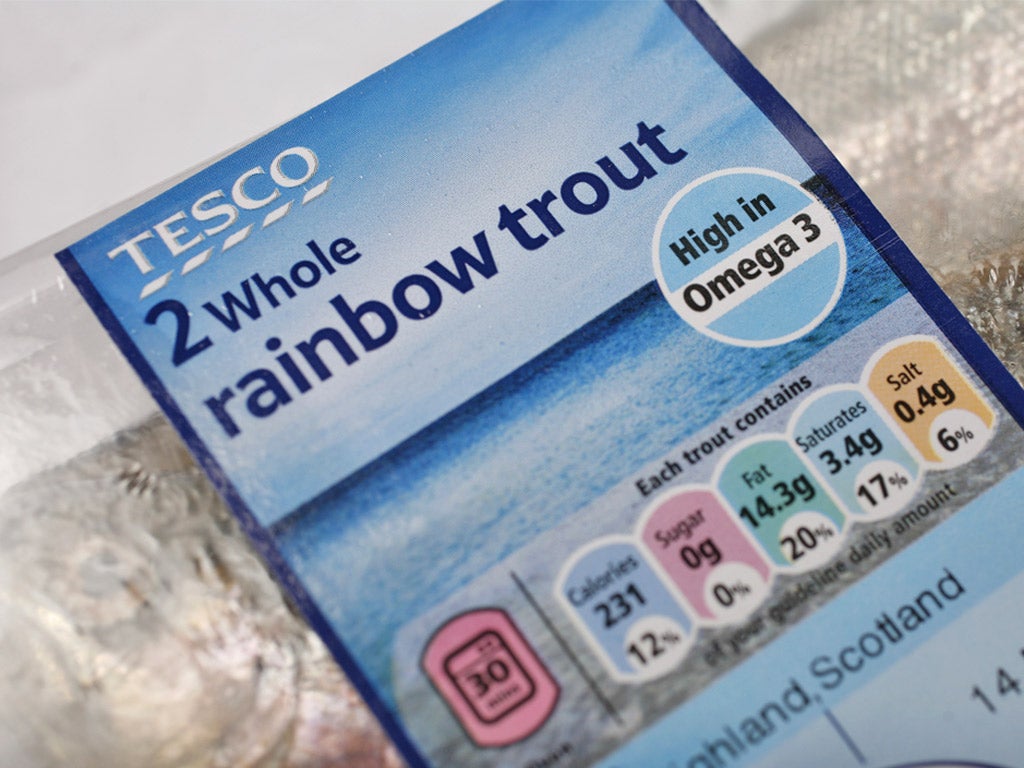Tesco gives in and agrees to colour-code food labels

After years of rebelling against official advice and protesting that using red, amber and green labels to signal the nutritional value of its products was too simplistic, Tesco is to adopt the popular "traffic light" system on its food and drink products.
The UK's biggest retailer said it had made the U-turn in response to new research showing that shoppers would prefer a combination of its long-favoured Guideline Daily Allowance (GDA) system and the colour-coded consumption advice used since 2005 by many of its competitors, including Sainsbury's, Waitrose and Co-Op.
Although Tesco always maintained its resistance was nothing to do with fears of red labels hurting sales, it had argued that traffic lighting would see some products unfairly stigmatised.
It opposed the three-colour system to such an extent that in 2007 it helped launch a £4m advertising campaign promoting its alternative – printing plain percentages of sugar, salt, fat and calories for each serving.
But the Food Standards Agency, which regards the traffic light system as the best way to encourage healthy eating, criticised the supermarket's approach, saying shoppers "can't always interpret the information quickly and often find percentages difficult to understand and use".
Tesco chief executive Philip Clarke said yesterday: "We always listen to our customers and they have told us that by combining our popular GDA labels with traffic light colour-coding we can make it even easier for them to make informed and healthy choices."
Morrisons is now the largest supermarket chain to use purely GDA labelling.
Sainsbury's chief executive Justin King said: "We hope this announcement will encourage other retailers and manufacturers to join us in working together to help achieve a consistent labelling for customers, to help them make healthier choices, wherever they shop."
Britons have an average of 17 plastic bags stored at home, according to a Which? survey. The watchdog's poll also found that more than half of consumers support a 5p charge for plastic bags in shops.
Join our commenting forum
Join thought-provoking conversations, follow other Independent readers and see their replies
Comments
Bookmark popover
Removed from bookmarks